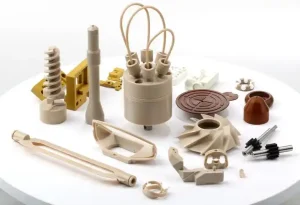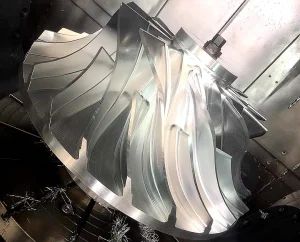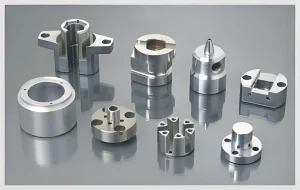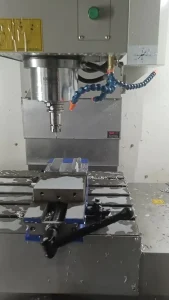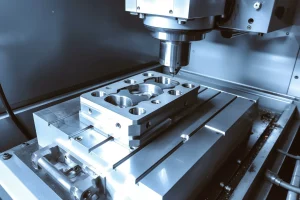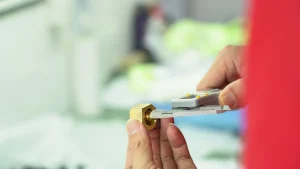Introduction to High Precision CNC Machining
High precision CNC machining plays a crucial role in various industries. This section will provide an overview of what high precision CNC machining is and its significance.
High precision CNC machining refers to the use of computer numerical control (CNC) machines to achieve extremely accurate and detailed manufacturing processes. It involves the precise control of cutting tools to shape and finish materials with a high degree of accuracy.
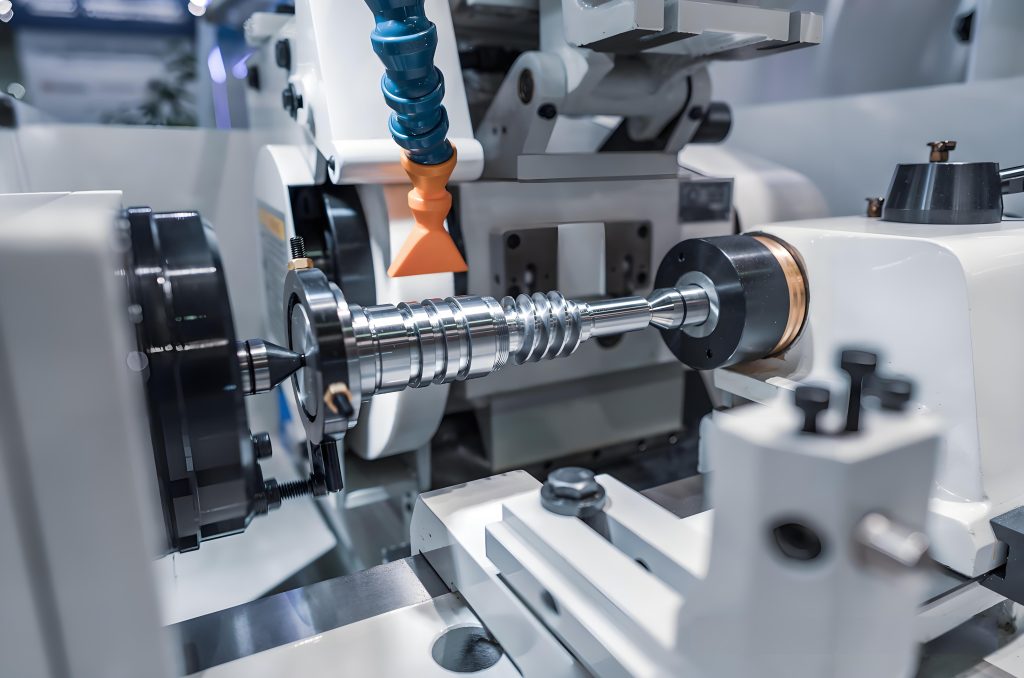
The significance of high precision CNC machining cannot be overstated. In industries such as aerospace, automotive, and medical, where parts must meet strict tolerances and specifications, high precision CNC machining is essential. It ensures that components fit together perfectly, function properly, and have a long service life.
For example, in the aerospace industry, parts must be manufactured with extremely high precision to ensure the safety and performance of aircraft. High precision CNC machining can produce parts with tight tolerances and complex geometries, meeting the demanding requirements of this industry.
In the medical field, high precision CNC machining is used to create implants and surgical instruments. The accuracy and quality of these products are crucial for patient safety and successful medical procedures.
Moreover, high precision CNC machining offers several advantages over traditional machining methods. It can produce parts with greater consistency and repeatability, reducing the risk of errors and defects. It also allows for more complex designs and faster production times, making it a cost-effective solution for many applications.
In conclusion, high precision CNC machining is a vital technology in modern manufacturing. Its ability to produce accurate and complex parts makes it an essential tool for a wide range of industries.
Advantages of High Precision CNC Machining
- High Precision: High precision CNC machining enables micron-level accuracy. This level of precision is essential for industries such as aerospace and medical equipment. In aerospace, parts must be manufactured with extremely high precision to ensure the safety and performance of aircraft. High precision CNC machining can produce parts with tight tolerances and complex geometries, meeting the demanding requirements of this industry. In the medical field, it is used to create implants and surgical instruments. The accuracy and quality of these products are crucial for patient safety and successful medical procedures.
- Consistency: High precision CNC machining ensures every product has the same dimensions and shape. This consistency is crucial for mass production. In traditional manual processing, it is difficult to ensure that each product is exactly the same. However, with CNC machining, the computer-controlled process can maintain a high degree of uniformity. For example, in industries like automotive manufacturing, where large quantities of parts are needed, consistency is essential for smooth assembly and proper functioning of the vehicles.
- Automation: High precision CNC machining reduces human intervention and lowers the risk of errors. The automated process is controlled by computer programs, which can accurately execute complex machining operations. This not only increases production efficiency but also reduces the likelihood of mistakes caused by human factors. In addition, automation allows for continuous operation, further enhancing productivity.
- Flexibility: High precision CNC machining allows for easy programming changes to adapt to different designs. The flexibility of the system enables manufacturers to quickly switch between different product designs and specifications. This is particularly useful for small batch production and customization. For instance, in the furniture manufacturing industry, CNC technology can be used to create complex designs and adapt to changing customer preferences.
- Safety: High precision CNC machining minimizes workers’ exposure to dangerous machinery. Since most of the operations are automated, workers are less likely to be in close proximity to the cutting tools and other hazardous parts of the machine. This reduces the risk of accidents and injuries in the workplace. Additionally, the automated monitoring and feedback systems of CNC machines can detect potential problems and shut down the machine if necessary, further enhancing safety.
Applications of High Precision CNC Machining
- Aerospace: High precision CNC machining is widely used in the aerospace industry for manufacturing complex engine parts and fuselage structures. The technology offers several advantages in this field. Firstly, it can achieve micron-level accuracy, which is crucial for ensuring the safety and performance of aircraft. Components such as engine parts and fuselage structures require extremely high precision to fit together perfectly and function properly. Secondly, CNC machining provides consistency, ensuring that every part has the same dimensions and shape. This is essential for mass production in the aerospace industry, where large quantities of parts are needed. Thirdly, the automation of CNC machining reduces human intervention and lowers the risk of errors. The automated process is controlled by computer programs, which can accurately execute complex machining operations. This not only increases production efficiency but also reduces the likelihood of mistakes caused by human factors. Additionally, CNC machining offers flexibility, allowing for easy programming changes to adapt to different designs. This is particularly useful in the aerospace industry, where designs may change frequently due to technological advancements and customer requirements. Finally, CNC machining minimizes workers’ exposure to dangerous machinery, enhancing safety in the workplace.
- Automotive: In the automotive industry, high precision CNC machining is utilized for processing engine components, body structures, and interior parts. The high precision of CNC machining ensures that engine components fit together precisely, optimizing engine performance and reducing wear and tear. Body structures manufactured with CNC machining have consistent dimensions and shapes, enhancing the overall aesthetics and aerodynamics of the vehicle. Interior parts produced with CNC machining can have complex designs, providing a more comfortable and luxurious driving experience. The automation and flexibility of CNC machining also contribute to the efficiency and customization options in automotive manufacturing.
- Medical Equipment: High precision CNC machining is required for producing surgical instruments and implants. The accuracy and quality of these products are crucial for patient safety and successful medical procedures. CNC machining can produce surgical instruments with extremely fine details and precise dimensions, enabling surgeons to perform delicate operations with greater accuracy. Implants manufactured with CNC machining have a high degree of precision, ensuring proper fit and integration with the patient’s body. The consistency and reliability of CNC machining make it an ideal choice for medical equipment manufacturing.
- Mold Making: High precision CNC machining helps create high-precision molds quickly. In mold making, accuracy and speed are essential. CNC machining can produce molds with tight tolerances and complex geometries, meeting the demanding requirements of various industries. The ability to quickly create high-precision molds shortens the production cycle and reduces costs. Additionally, the flexibility of CNC machining allows for easy modifications and adjustments to the mold design, enabling manufacturers to respond quickly to changing customer needs.
- Furniture Manufacturing: In furniture manufacturing, high precision CNC machining enables complex designs for enhanced aesthetics. CNC machining can create intricate patterns and shapes on furniture pieces, adding a unique and stylish touch. The precision and consistency of CNC machining ensure that each piece of furniture is of high quality and has a uniform appearance. The flexibility of CNC machining allows furniture manufacturers to customize designs according to customer preferences, providing a wider range of options for consumers.
The Future of High Precision CNC Machining
- AI Integration: Intelligent systems will optimize the machining process.
With the rapid development of artificial intelligence (AI), it is expected that intelligent systems will play an increasingly important role in high precision CNC machining. AI can analyze vast amounts of data from the machining process and optimize parameters such as cutting speed, feed rate, and tool path to achieve better machining quality and efficiency. For example, AI can detect potential issues in real time and adjust the machining process accordingly to prevent defects and reduce waste.
- IoT Integration: Enables remote monitoring and management.
The integration of the Internet of Things (IoT) in high precision CNC machining allows for remote monitoring and management of the machining process. Sensors installed on the machines can collect data on various parameters such as temperature, vibration, and power consumption, which can be transmitted to a central control system for analysis. This enables operators to monitor the status of the machines from a remote location and take timely actions if any issues arise. Additionally, IoT integration can also facilitate predictive maintenance, reducing downtime and improving overall equipment effectiveness.
- New Materials: Will expand its application range.
The development of new materials is constantly expanding the application range of high precision CNC machining. Advanced materials such as composites, ceramics, and superalloys offer unique properties that make them suitable for various industries. However, machining these materials often requires specialized tools and techniques. High precision CNC machining can be adapted to handle these new materials by using advanced cutting tools and optimizing machining parameters. This allows manufacturers to produce complex parts with high precision and quality for applications in aerospace, medical, and other high-tech industries.
- Green Manufacturing: Focus on eco-friendly processing methods.
As environmental concerns continue to grow, green manufacturing is becoming an important trend in high precision CNC machining. Manufacturers are focusing on developing eco-friendly processing methods to reduce energy consumption, waste generation, and environmental impact. This can be achieved through measures such as optimizing cutting parameters to reduce power consumption, recycling waste materials, and using environmentally friendly coolants and lubricants. Additionally, the adoption of sustainable manufacturing practices can also help companies meet regulatory requirements and enhance their corporate social responsibility.

